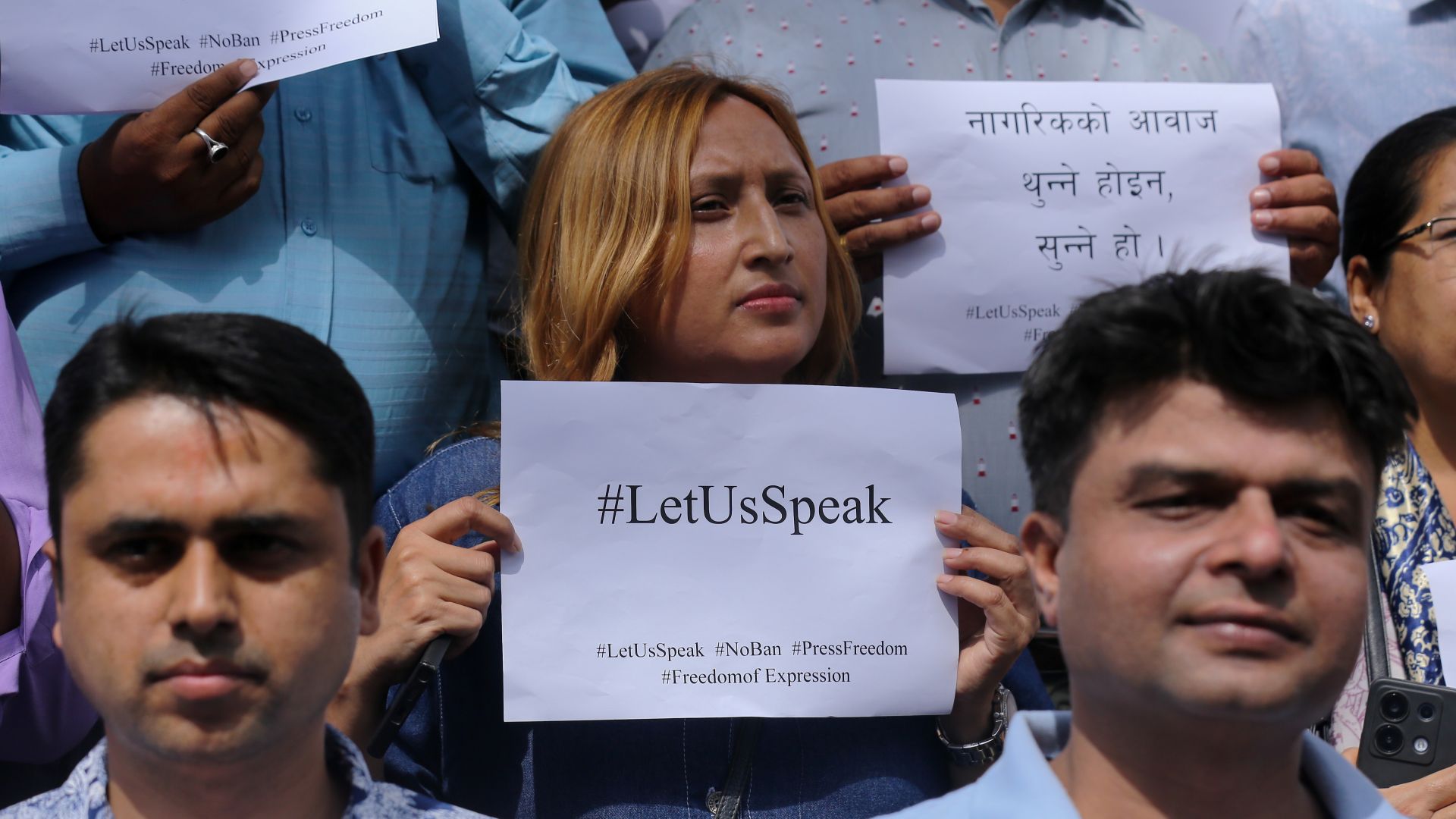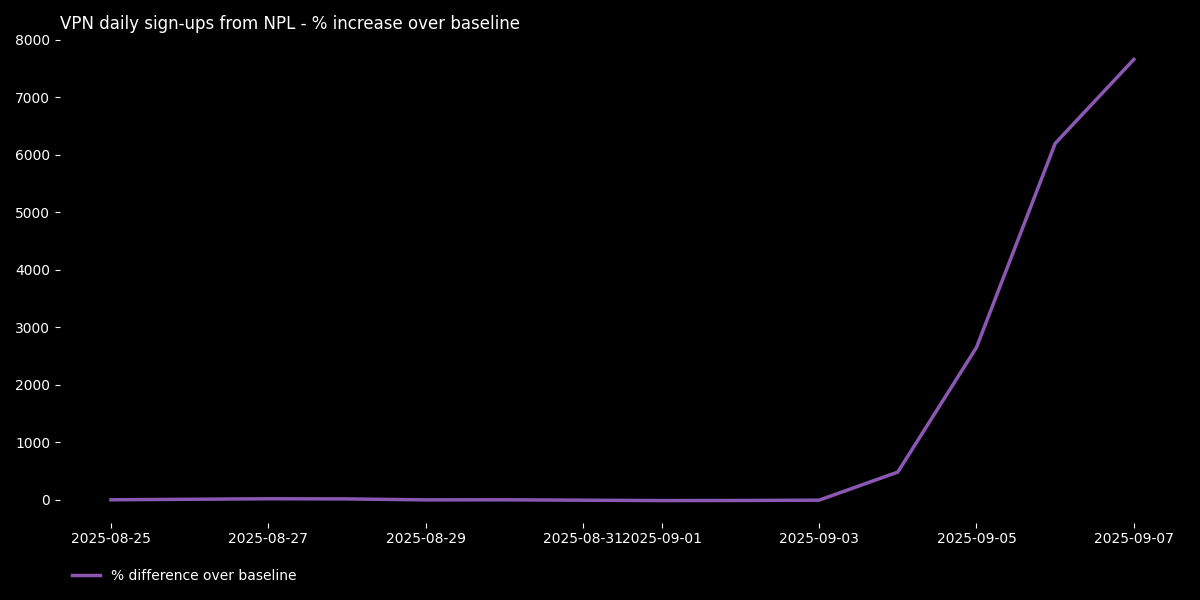Nepal is the 8th country in 2025 to issue a social media ban – provoking an over 8,000% spike in VPN sign-ups
The protests have seen a huge upturn in usage to bypass the imposed ban

Nepal is just the latest in a long list of countries shutting down access to social media platforms during times of political instability – and at least the 8th nation to do so in 2025 so far.
Authorities in Nepal began enforcing a ban on all major social media apps and websites starting from Thursday, September 4. 26 social media platforms were impacted, including Facebook, Instagram, YouTube, and X. The government justified the ban by saying that these companies failed to comply with local registration rules – TechCrunch reported – as well as the ban serving as a way of tackling fake news, hate speech, and online fraud, according to the BBC.
However, the ban would then be lifted on Tuesday, September 9, and, as when similar incidents have occurred elsewhere, Nepalese citizens have turned en masse to the best VPN services to stay connected.
One of the most secure and reliable free VPN apps on the market, Proton VPN recorded spikes in usage of over 8,000% across the country starting from Thursday.
A company spokesperson told TechRadar that, at the time of writing, Proton VPN usage still remains above baseline in Nepal, despite the rate of downloads starting to decrease as the ban was loosened.
How a VPN can help?

A virtual private network (VPN) encrypts all users' internet connections, while masking their IP address for extra privacy and security.
The latter skill is exactly what's needed to be able to bypass otherwise geo-blocked content online, such as a censored website, like in the case of Nepal.
All that's needed is connecting to a VPN server based outside of Nepal (and any other country enforcing similar restrictions) to trick the local internet service provider (ISP) into granting access to censored sites.
Social media bans – a quick 2025 overview
Nepal is the 8th example in 2025 so far of a government opting to restrict social media access as political tensions grow across the country, impacting people's right to free speech and access to information.
Only this week, Turkey enforced a 24-hour blockade on all major social media apps on Monday, September 8, throttling access to X, YouTube, Instagram, Facebook, TikTok, and WhatsApp. That was at least the second time it happened this year, with a similar ban occurring in March.
Proton VPN registrations in Indonesia spiked +1300% overnight amid reports of social media blocks during anti-government protests.Pendaftaran Proton VPN di Indonesia melonjak 1300% semalam, menyusul laporan pemblokiran media sosial saat protes anti-pemerintah. pic.twitter.com/jd141bWUhzAugust 30, 2025
Proton VPN downloads also skyrocketed in Indonesia at the end of August, with spikes of "+1300% overnight amid reports of social media blocks during anti-government protests," wrote Proton VPN's General Manager, David Peterson, on a post on X.
Social media restrictions also occurred in 2025 across Kenya, Tanzania, Togo, DR Congo, and Venezuela. The latter country even targeted VPN usage by blocking over 20 VPN websites.
In 2024, Proton recorded spikes in VPN usage across 119 countries during times of political crisis, over what experts at Access Now described as "the worst year on record for internet freedoms," yet again.
You might also like

Chiara is a multimedia journalist committed to covering stories to help promote the rights and denounce the abuses of the digital side of life – wherever cybersecurity, markets, and politics tangle up. She believes an open, uncensored, and private internet is a basic human need and wants to use her knowledge of VPNs to help readers take back control. She writes news, interviews, and analysis on data privacy, online censorship, digital rights, tech policies, and security software, with a special focus on VPNs, for TechRadar and TechRadar Pro. Got a story, tip-off, or something tech-interesting to say? Reach out to chiara.castro@futurenet.com
You must confirm your public display name before commenting
Please logout and then login again, you will then be prompted to enter your display name.